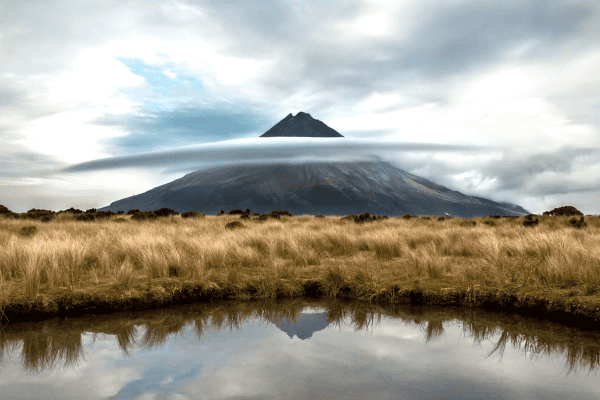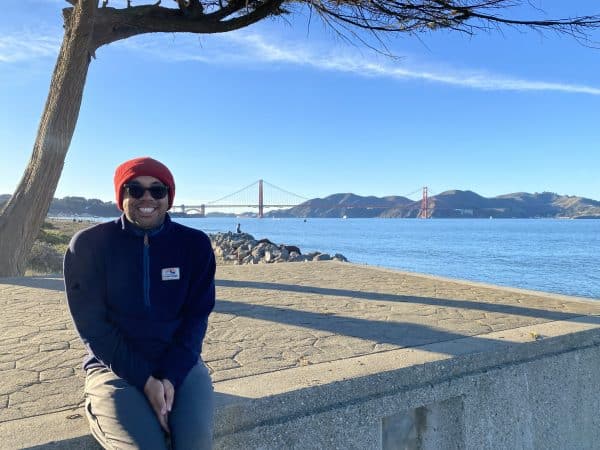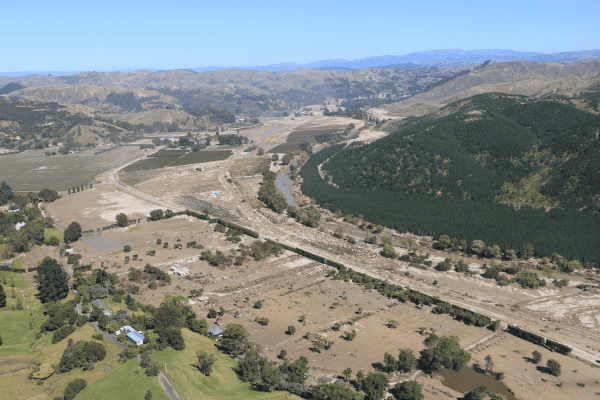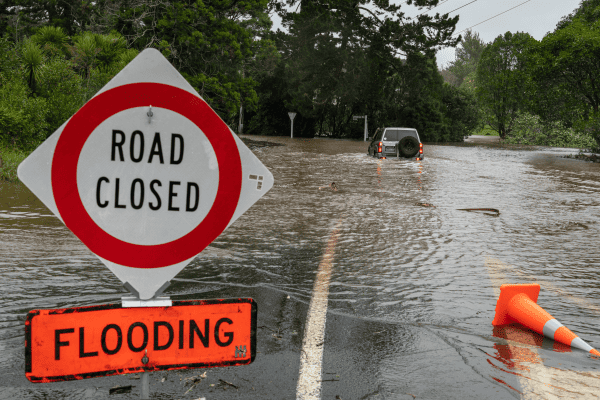Being part of Generation Zero
25/01/2019
Lisa McLaren
Resilience Challenge PhD candidate by day, climate change hero by night.
We speak with Lisa McLaren who, when not researchingcitizen science and community resilience to hazard events, is a convener and spokesperson for Generation Zero, a youth-led organisation helping New Zealand cut carbon pollution.
What sparked your interest in climate change policy and research?
Growing up on a farm I felt that the connection between weather and our environment was really clear. It was only in my last stages of my undergraduate degrees that I started to pay attention to the growing noise around how climate change was effecting our environment.

I studied at Victoria University of Wellington – completing a BSc in Environmental Studies, BA in Anthropology, and a Masters in Environmental Studies with a thesis on climate change education. I started to learn the academic side of climate change science and policy through these degrees.
I attended two major UN climate change conferences – COP19 in Poland (2013) and COP21 in Paris (2015). COP 19 was the place I learnt I really wanted to do something to help solve the climate crisis, and COP21 was the place where I learnt how to do this.
I came home from Paris and felt the need to put my newly found climate campaigning skills to good use. I had to do it voluntarily as there were hardly any jobs related to climate change action at that time. Instead, I worked for four years in local government with roles in sea level rise planning and emergency management. I spent a lot of time working with community groups on how to build their resilience to natural hazard events, including those that will be exacerbated by climate change in the future. I gave up my paid local government role to work full time on my PhD and my volunteer role as the National Convenor of the Zero Carbon Act campaign with Generation Zero.
Tell us about Gen Zero and your role in the team
Gen Zero is basically a group of passionate young people (or young at heart!) who volunteer their time to work on creative, positive solutions to climate change through transport and city design, education, and our proposed new climate change law – the Zero Carbon Act.
I have volunteered as the National Convenor of the Zero Carbon Act campaign for the last 2.5 years. I coordinate a team of 10 core volunteers, and a wider pool of around 100 people.
The campaign for a Zero Carbon Act started in a cafe in Wellington in early 2016. Gen Zero had done some research prior into what the UK’s climate law looked like and that day in the cafe we decided as a group that we might as well try to create one here too. We launched our intent to draft a new climate law outside Parliament in June 2016 and by the end of 2016 we had formed a policy team who had begun drafting our blueprint for what we were then calling a ‘Zero Carbon Act’. We created a policy reference group made up of policy experts, lawyers, academics, who could guide our policy team on their journey. Our proposed law was similar to the UKs Climate Change Act in many ways, but it had to be tailored for the Aotearoa New Zealand context. While our policy team was getting the technical details right, our campaign team focused on socialising the new proposed law with anyone that would listen. We did presentations up and down the country, wrote Opeds and blogs, and formed a group of allied NGOs who could share our idea with their networks. Our blueprint was launched in April 2017 outside Parliament once again – this time we had an extensive list of supporting groups and individuals, including support from youth political parties from all sides of the house.
We were amazed when the Green Party announced that they would establish a Zero Carbon Act if they got into government, and even more amazed when the Labour Party and NZ First signaled similar promises. The new coalition government then consulted on the proposed new law in mid-2018. There were 15,000 submissions on that consultation – this was huge success considering it is common to receive around 500 submissions for proposed legislation. As a group we have been training our volunteers to have meetings with their local MPs to discuss how climate change impacts them, their whanau and wider community.
Our campaign has now changed – we no longer have a say on the outcome of the draft law and the name will probably change. The government and opposition are currently still in talks about what this law should look like and we will hopefully know the outcome of their negotiations early this year. This loss of power over our proposed law is exactly what we wanted to happen when we started the campaign. We needed it to be taken up by the politicians who can bring it to life. But it has taken us a while to feel ok with giving up control over something we have all worked so tirelessly to create.
This next stage gives us an opportunity to critique the bill when it is drafted early next year and as a team we are aiming to broaden our campaign scope, from selling a climate law to developing a vision. We want to go around the country in the new year and see what New Zealanders from all walks of life want our low emissions 2050 Aotearoa to look like.
Why do people get involved?
There are multiple different reasons, often quite specific. We talk about our ‘climate story of self’ a lot. This is based on the climate change journey people have been on, and usually includes an ‘aha!’ moment where they decide to put lots of time and energy into solving the problem.
Mine is based on how the storms, floods, and droughts that hit my home region are going to made worse by climate change in the next few years. And that’s going to keep hurting my home community in the Wairarapa. I want to make sure all our rural communities are set up to succeed during this transition to a low emission economy and I am glad to see these discussions have already begun. But I also want the rural community to realise that they have many parts to play in the much needed plan to reduce our countries greenhouse gas levels. And I hope they come to the table with innovation and creativity, rather than resentment and narrow-mindedness that we have seen from many to date. The same goes for those in the urban areas who will need to tackle low emissions transport and housing. This journey is going to need all kiwis to be a part of it and will require change in all sectors and all communities.
My worry is that we are not talking about these issues in the right way. We are often talking past each other, or at each other, but not having a genuine conversation about it. And that is where the change will start, with genuine conversations using up to date science and with a lens of New Zealand’s responsibility as a developed nation to be doing more than the bare minimum to solve this problem.
What do you have to do as a member of Gen Zero?
There are really variable roles within the organisation. In the Zero Carbon Act team we have roles in policy/research, engagement with communities/NGOs, social and traditional media, as well as admin and team organising. As we are all volunteers we play to people’s strengths and work with the skills we have available at any particular time. In means having to adopt an adaptable work style but the results are great.
Has there been a standout moment?
The highlight of the Zero Carbon Act campaign has to be when the new govt announced they would implement a Zero Carbon Act after a consultation period. They did this consultation in June/July 2018 and it was unreal to see our concept being debated up and down the country.
How can people find out more about volunteering for Gen Zero?
They can sign up on our website –www.generationzero.orgor contact one of the Zero Carbon Act team at www.zerocarbonact.nz.
Your research with the Resilience Challenge is centred around climate change and adaptation too, can you tell us about that?
My PhD is funded through the Resilience to Nature’s Challenges programme and it is looking at how citizen science can be used to build community resilience to hazard events. In a nutshell it is looking at how participation in science can help to increase knowledge of hazards and build trust of science/scientists within communities. I am building a model for how hazard researchers can include citizen science more effectively in their work and hope to trial it with a community-based coastal hazards project late next year.
What is the importance of citizen science?
I think that citizen participation in science is really important, especially in the age of ‘fake news’ and a growing distrust of the legitimacy of science in some circles. Citizen science has the ability to connect people with science in a way that builds trust in the process and the data produced. I like the ability of citizen science to empower groups to use the data they collect to manage problems in their environment.







